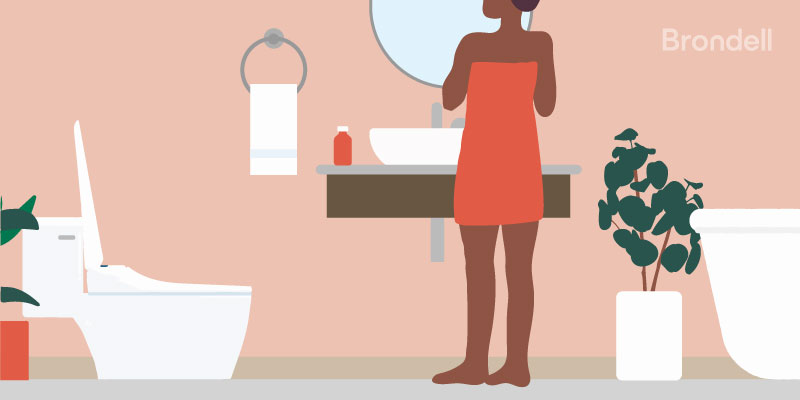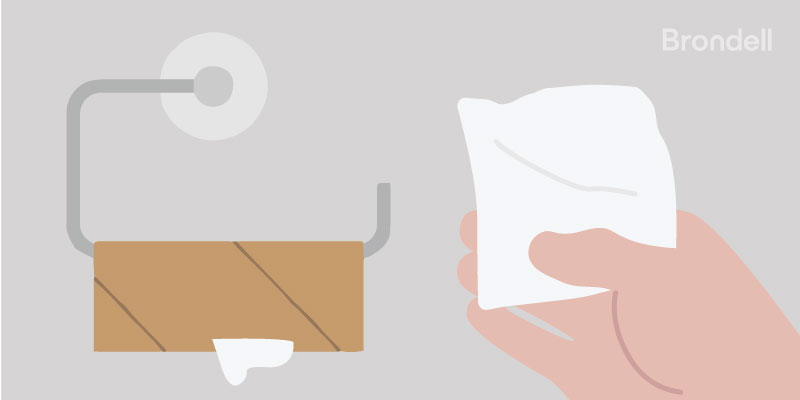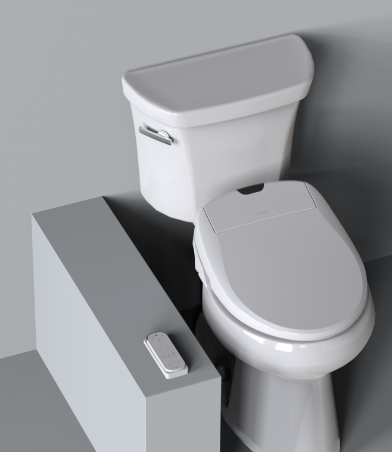Hemorrhoids happen: why they develop and how to deal

We get it. Talking about hemorrhoids can be awkward. But there’s no reason to be embarrassed—they’re very common. In fact, roughly 3 out of 4 people will experience hemorrhoids at some point in their lives.
There’s something even more uncomfortable than talking about hemorrhoids—leaving them untreated. Without treatment, undesirable symptoms like inflammation, itching, burning, and bleeding can last for days, or in chronic cases for weeks (or more).
So what’s happening “down there” to cause so much unpleasantness? Hemorrhoids are essentially swollen veins that occur internally and externally. They happen when there’s increased pressure around your anus or rectum, which can be caused by low-fiber diets, pregnancy, obesity, and constipation.
Home remedies for hemorrhoids
Most cases of hemorrhoids can be effectively treated at home. Pharmacy shelves are full of over-the-counter ointments and creams that provide temporary relief of symptoms. These medications work by narrowing the inflamed blood vessels for a time, relieving discomfort. Some also contain local anesthetics for pain relief.
For those concerned about the ingredients in these ointments, there are alternative treatments for hemorrhoids like witch hazel, Epsom salts, and aloe vera. Natural hemorrhoid treatments may soothe inflammation. However, the efficacy and safety of herbal hemorrhoid treatments vary widely, so be sure to do your research or talk to your doctor.
Fortunately, the best natural hemorrhoid remedies don’t require a trip to the pharmacy. Those include: eating more fiber, drinking more water, exercising, and changing your bathroom habits (more on that below).
Excessive wiping can make hemorrhoids worse.

If you suffer from hemorrhoids, you may dread going to the bathroom. Cleaning yourself comfortably after you go can be a challenge. Wiping with dry toilet paper products can cause irritation at any time—but it can be downright painful with hemorrhoids, especially external ones. Experts recommend avoiding wiping with dry toilet paper as this can prolong pain and discomfort.
That’s what makes bidets an ideal natural remedy for hemorrhoids.
Does a bidet help with hemorrhoids?

Absolutely. Here’s why: Bidets provide a soothing, hygienic option to dry toilet paper, which is one of the main agitators of hemorrhoid symptoms. Wiping can negatively impact hemorrhoids in several ways. Wiping too hard may increase itchiness and discomfort. On the flip side, not cleaning yourself well enough may things worse, as well.
Proper use of a bidet can help on both of those fronts. We know washing with water is more hygienic than wiping—it’s why we take showers instead of wiping ourselves down with paper towels. Washing with a bidet provides a gentle way to clean after you go while actively soothing the painful area.
When using a bidet with hemorrhoids, experts recommend washing with low pressure so as not to cause any further irritation. When you’re done, gently pat dry with toilet paper or, even better, a soft bidet towel. You can also get a bidet with a warm air dryer to further reduce or eliminate the need to wipe.
Bidets are good for hemorrhoids because they promote better hygiene and a gentle way to clean. They may also help alleviate constipation, a common root cause of hemorrhoids. One study found that using a bidet before going to the bathroom reduced the severity of constipation among participants. Getting plenty of exercise, fiber, and water is important for staying regular—and while more research is needed, a bidet may make a great addition to that list.
If you’ve never had a bidet before, know that finding the right one for your bathroom is an easy process. With options like bidet toilet seats, bidet attachments, and bidet sprayers, there’s a bidet for every preference and budget. You can easily add one to your toilet yourself—no need for a plumber. And, if you travel frequently, a portable bidet provides a gentle option to wiping on the go.
An alternative to sitz baths
A popular and effective home remedy for hemorrhoids is the sitz bath. This is the process of sitting in warm water to promote blood flow and soothe irritation. There are sitz bath attachments that fit over your toilet seat—or, you can get the same benefits by simply sitting in your bathtub with warm (not hot) water.
A sitz bath may help you find some much-needed relief from hemorrhoid symptoms, like pain and inflammation. Bidets with warm water washes, low water pressure, and wide sprays may provide some of the same health benefits, according to this study. Our Swash 1400 Luxury Bidet Toilet Seat has all of those features and more, making it a convenient alternative to sitz baths.
To dry off after a sitz bath, doctors recommend gently patting the area dry or using a hair dryer. A bidet toilet seat like the Swash 1400 offers a better alternative: a built-in warm air dryer. This feature provides a soothing, hands-free way to dry any remaining water without wiping.
With proper home treatment and care, most cases of hemorrhoids get better on their own. If yours are serious enough to need surgery, a bidet may help with the healing process. This study looked at the difference between using sitz baths and warm water sprays after hemorrhoid procedures. Participants found that using a warm water spray was both more convenient and satisfactory. While these results are promising, you should talk to your doctor before using a bidet after surgery.
Preventing hemorrhoids
These at-home hemorrhoid treatments will provide you with short-term hemorrhoid relief. But they don’t address the underlying causes of hemorrhoids, like diarrhea, constipation, or diets that are low in fiber. Whether you’ve suffered before or you’re experiencing them for the first time, adopting long-term holistic strategies is the best way to stay hemorrhoid-free in the future.

Simple lifestyle changes can help treat existing hemorrhoids, and more importantly, ensure that they don’t return. Eating more fiber and drinking more water softens stool so it’s easier to pass. This not only relieves hemorrhoid pain but also helps prevent straining, which is one of the most common causes of hemorrhoids. Because prolonged sitting increases the pressure on your rectum, regular exercise is great for prevention—and is just good for your health, in general.
Hemorrhoid relief is just the beginning
Bidets are a great solution for gentle, natural hemorrhoid relief—but they provide a lot more benefits, as well. Once you’ve successfully treated your hemorrhoids, you’ll never want to go back to wiping. From saving money on toilet paper to helping the environment, the perks of using a bidet are endless. You’ll enjoy being cleaner, healthier, and more comfortable long after your hemorrhoids have healed.
